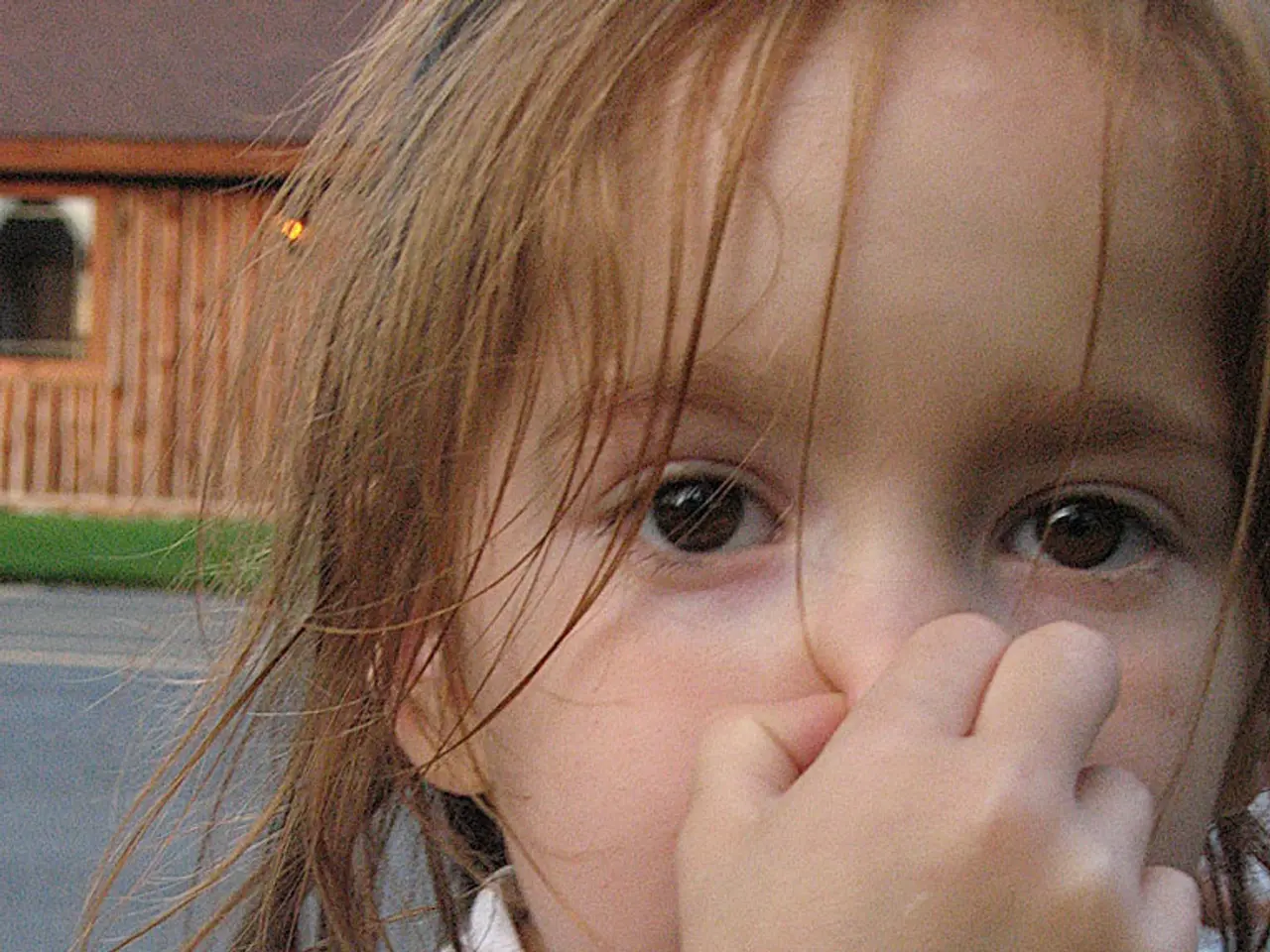Top-tier Nasal Decongestants Sorted by Age Groups
In the battle against nasal congestion, decongestants have proven to be a popular choice for both adults and children. These medications, available in oral and topical forms, aim to reduce swelling and improve airflow in the nasal passages.
For adults, topical decongestants like nasal sprays containing oxymetazoline are highly effective for short-term relief. They work by constricting blood vessels in the nasal passages, thereby reducing swelling and improving airflow [1][5]. On the other hand, oral decongestants such as pseudoephedrine can be effective when used as directed. However, oral phenylephrine, another common ingredient, has been found to be ineffective at over-the-counter (OTC) doses for relieving nasal congestion [3][4].
When it comes to children, care must be taken. Topical decongestants can be used under medical guidance, but they should not be used for extended periods due to the risk of rebound congestion. Oral decongestants in children should be used with caution and only under the advice of a healthcare provider due to potential side effects [1].
However, it's essential to note that prolonged use of topical decongestants can lead to rebound congestion, where the nasal passages become dependent on the medication to remain open [1][3]. Some oral decongestants may cause increased heart rate and blood pressure, which can be a concern for people with cardiovascular conditions [1].
In terms of safe and effective options, oxymetazoline nasal spray is effective for short-term relief but should not be used for more than 3-5 days to avoid rebound congestion. Pseudoephedrine can be effective when used as directed, but it requires careful monitoring due to potential side effects [1].
For those seeking alternatives to decongestants, nasal saline irrigation, humidifiers, and antihistamines can offer relief. Nasal saline irrigation helps moisturize the nasal passages, while humidifiers add moisture to the air, reducing congestion, especially at night [3][5]. Antihistamines may help if nasal congestion is due to allergies [4].
It's crucial to remember that decongestants, while generally safe for adults, should be used with caution, especially for children. Always consult with a healthcare provider before using any decongestants in children. They can help determine the safest and most effective option based on the child's age and health status.
In 2007, regulations were placed on the sale of pseudoephedrine due to its illegal use in the making of methamphetamine. Therefore, it's important that an individual sees their doctor before taking a decongestant medication.
In conclusion, while decongestants can provide effective relief for nasal congestion, their use should be guided by a healthcare provider, especially for children. Always remember to read and follow the instructions provided with any medication, and consult a doctor if you have any concerns or questions.
- People with diabetes may benefit from proper dietary changes, medication, and lifestyle adjustments as a remedy for managing their condition.
- Psoriatic arthritis is a chronic disease that can cause pain, swelling, and joint damage, requiring medical treatment for a psoriasis-related condition.
- Sclerosis, in its multiple forms, can sometimes be associated with depression, which often requires psychological support, medications, or a combination of both for treatment.
- Lung congestion can be alleviated by avoiding air pollutants, smoking cessation, and using medications such as decongestants, when necessary.
- Obesity, identified as a risk factor for several chronic diseases including lung conditions, can be managed with a combination of nutrition, fitness-and-exercise, and possibly medications.
- Ulcerative colitis, a type of inflammatory bowel disease, may require treatment with medications like immunosuppressants or biologics, in addition to dietary modifications.
- HIV, a viral infection, typically requires antiretroviral therapy to suppress the virus and improve life expectancy and quality of life.
- Depression, a common mental health disorder, can be remedied with therapy, medication, or a combination of both, under the care of a healthcare provider.
- Sinus inflammation can often be treated with decongestants, nasal saline irrigation, or antihistamines, depending on the underlying cause.
- Eczema, a chronic skin disorder, can be managed with moisturizers, topical medications, and avoidance of allergens, as part of a comprehensive skin-care routine.
- Other nasal disorders, such as rhinitis or allergic retinopathy, may require a range of treatments including antihistamines, nasal sprays, or corticosteroids for relief.
- Bipolar disorder, a mental illness characterized by mood swings, typically requires medications, therapy, and lifestyle changes for effective management.
- Hepatitis, an inflammation of the liver, can be caused by a variety of factors, and may require specific treatments such as antiviral medications or vaccines, depending on the type.
- Arthritis, a group of conditions causing joint pain and inflammation, can be managed through various treatments including medications, physical therapy, and lifestyle modifications.
- NSCLC, a type of lung cancer, may require treatment with surgery, chemotherapy, radiation, or targeted therapies, as part of a personalized treatment plan.
- AQ, a predictive marker for air quality, can help individuals with respiratory conditions, such as asthma or COPD, plan their activities to avoid aggravating their symptoms.
- Colitis, an inflammation of the colon, can be treated with antibiotics, corticosteroids, or immunosuppressants, depending on the underlying cause and severity.
- Pfizer, a pharmaceutical company, has developed multiple medications to treat a variety of medical-conditions, including diabetes, cancer, and cardiovascular diseases.
- Psoriasis, a skin condition characterized by red, scaly patches, may require topical treatments, light therapy, or systemic medications for effective management.




